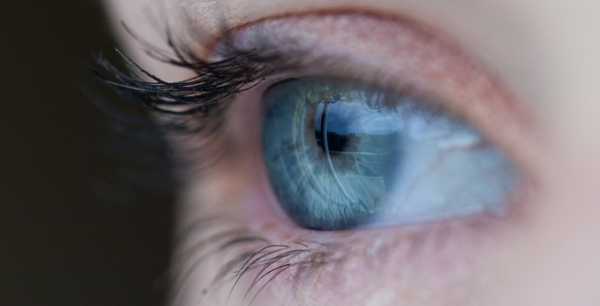
Cannabis and Eye Health: Does It Help or Hurt Your Vision?
As a child, you were taught about your five senses. Each of your senses helps you to navigate the world around you, but it can be argued that vision is one of the most essential, considering that a majority of everything you perceive occurs through sight.
If you’re diagnosed with a health issue that impacts the function of your eyes and your vision, such as glaucoma, it can be devastating. Luckily, new research suggests that tetrahydrocannabinol (THC) and cannabidiol (CBD), both compounds found in cannabis, have antioxidants and neuroprotective properties that can support healthy vision and even treat existing diseases of the eye. Here’s what you need to know about the effects of cannabis on the eyes — and the rest of you, too!
How Cannabis Impacts Sight
More and more research is being done to understand the impact of cannabis on the body, including the eyes. What they’ve found is that cannabis, and the compounds contained in it, help you to see things just a little differently.
Cannabis compounds, such as THC, tap into your body’s cellular communication network — specifically the endocannabinoid system (ECS). When you ingest cannabis, then the compounds interact with the ECS by engaging the cannabinoid receptor cells.
The human eye just so happens to contain a high concentration of a specific cannabinoid receptor called CB1, which are also contained in the visual processing centers of the brain. It’s thought that tapping into these receptors helps improve their function, making your vision sharper. Studies have found that shortly after consuming cannabis or cannabis compounds, such as CBD, you experience enhanced night vision and faster visual processing in the brain.
Treatment of Eye Diseases
There’s still a lot out there to discover about eye health and cannabis, but there’s a growing body of evidence that suggests it can be a useful tool in the treatment of certain eye diseases. These include:
Glaucoma: The red eye that cannabis is famous for inducing may also be the key to how it helps treat increased pressure in the eye, called glaucoma. Glaucoma can lead to damage of the optic nerve and is one of the leading causes of blindness in the world. When patients consume cannabis as a treatment for glaucoma, their blood pressure drops and the capillaries dilate, causing the eyes to turn red. If you have glaucoma, then reduced blood pressure can also help reduce pressure in the eyes and relieve symptoms and degenerative effects of the disease.
Diabetic retinopathy: Cannabidiol (CBD) has been gaining popularity, and if you have diabetes, then it’s a treatment you may want to explore. With diabetic retinopathy, high blood sugar levels can cause damage to the blood vessels in and around the retina, which is needed for vision. CBD oil is a potent antioxidant, which means it can help to mitigate some of the toxicity in the retina that accelerates degeneration.
Neurodegenerative blindness: Recent research has suggested that cannabis-based medicines may be able to slow down the progression of degenerative blindness. Compounds found in cannabis were observed to help prolong the life of photoreceptors in the eye of those with diseases that cause blindness, such as retinitis pigmentosa. Other studies have found that the antioxidants in cannabis can also improve eyesight that is dulling from age as well as improve symptoms of other age-related conditions, such as arthritis.
Other Ways Cannabis Improves Health
If you’re taking CBD or THC to improve your eye health, you may notice some other positive side effects. A few of the health benefits of the compounds found in cannabis include:
Pain relief: Marijuana has been used to help reduce pain for thousands of years. Recently, researchers discovered that CBD has incredible pain-relieving effects by interacting with the ECS system. Chronic pain can be reduced with CBD use because it impacts endocannabinoid receptor activity in the central nervous system, helping to reduce inflammation and alter the perception of pain.
Improved heart health: The circulatory system and the heart may also benefit from THC and CBD since it helps to lower blood pressure. High blood pressure is linked to several chronic illnesses such as heart attack and stroke. CBD may naturally decrease blood pressure, which then helps your circulatory system to function as it should, reducing your risk of disease.
Diabetes prevention: In studies with mice, CBD was found to reduce diabetes by 56% by reducing chronic inflammation present in the body.
Digestive relief: For people with gastroesophageal reflux disease, or GERD, cannabis is a promising treatment. The ECS system that controls pain also has anti-secretory effects that can help naturally reduce stomach acid and control inflammation in the esophagus to help bring patients relief.
The Bottom Line
There are still a lot more researchers need to learn about the impact cannabis on your body and the effect its compounds can have on disease processes, but so far things look very promising. Since research is ongoing, expect for many more therapeutic uses for this safe and natural remedy to be discovered. One day, cannabis may help everyone to see things a little clearer.


